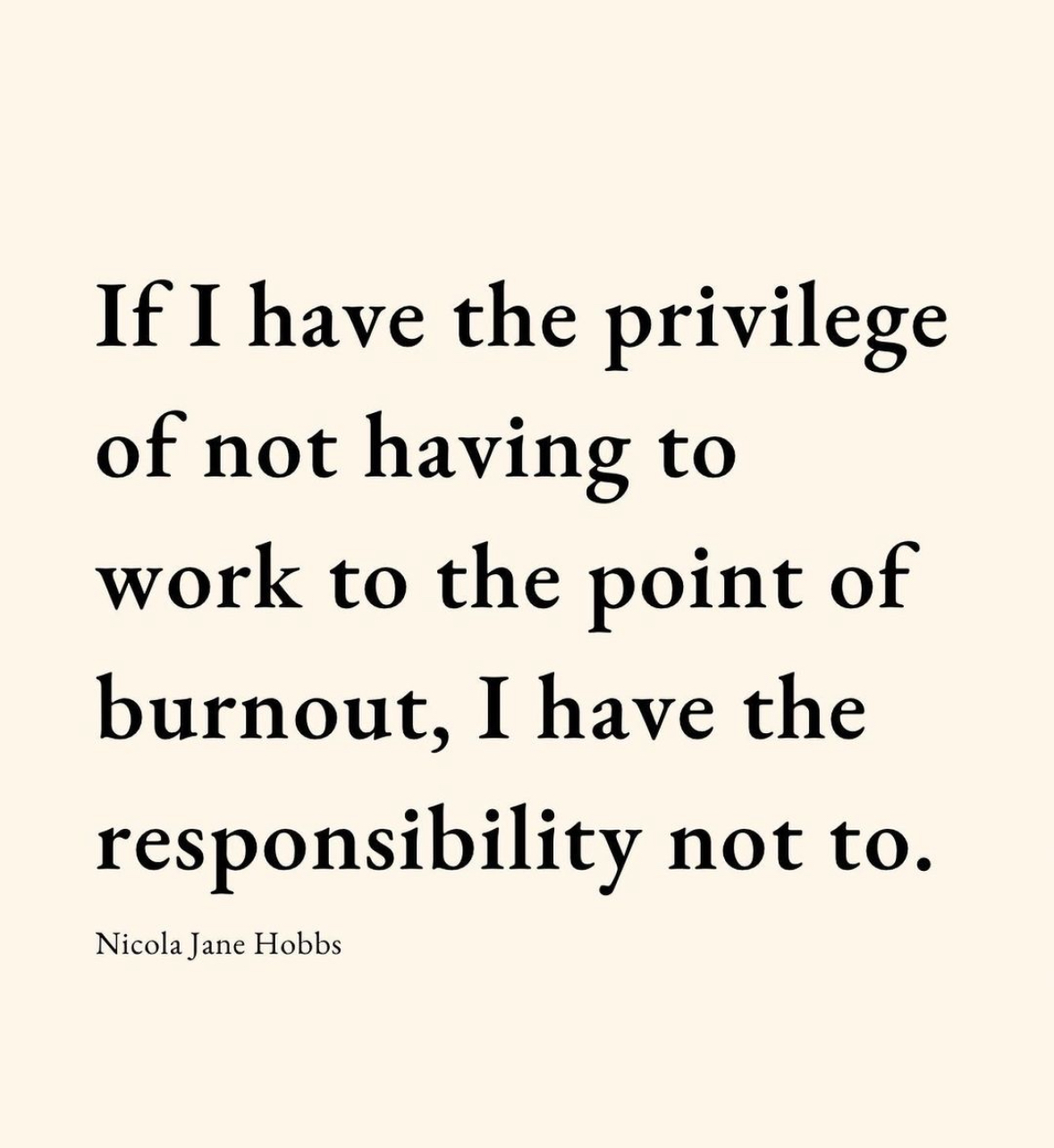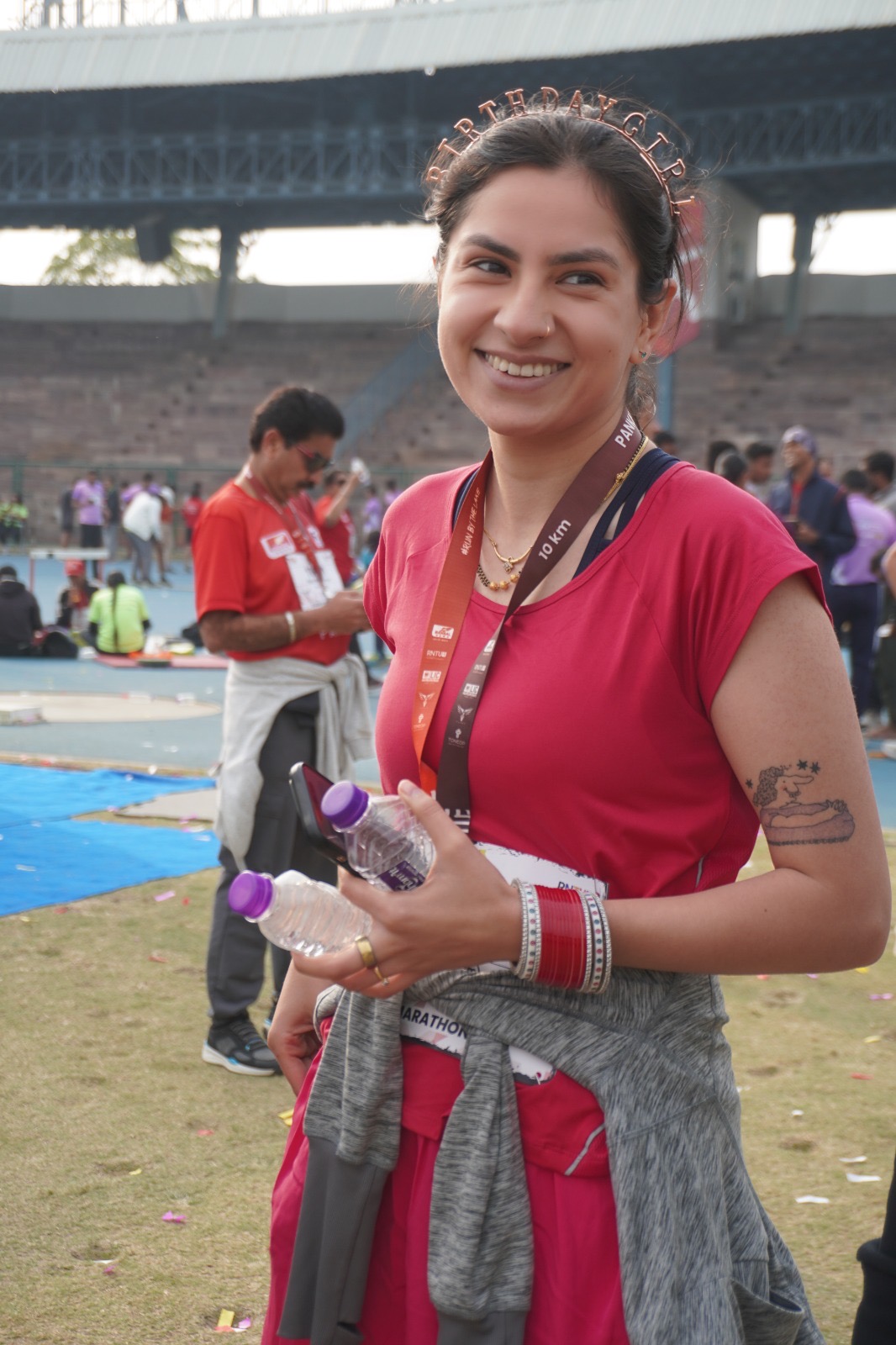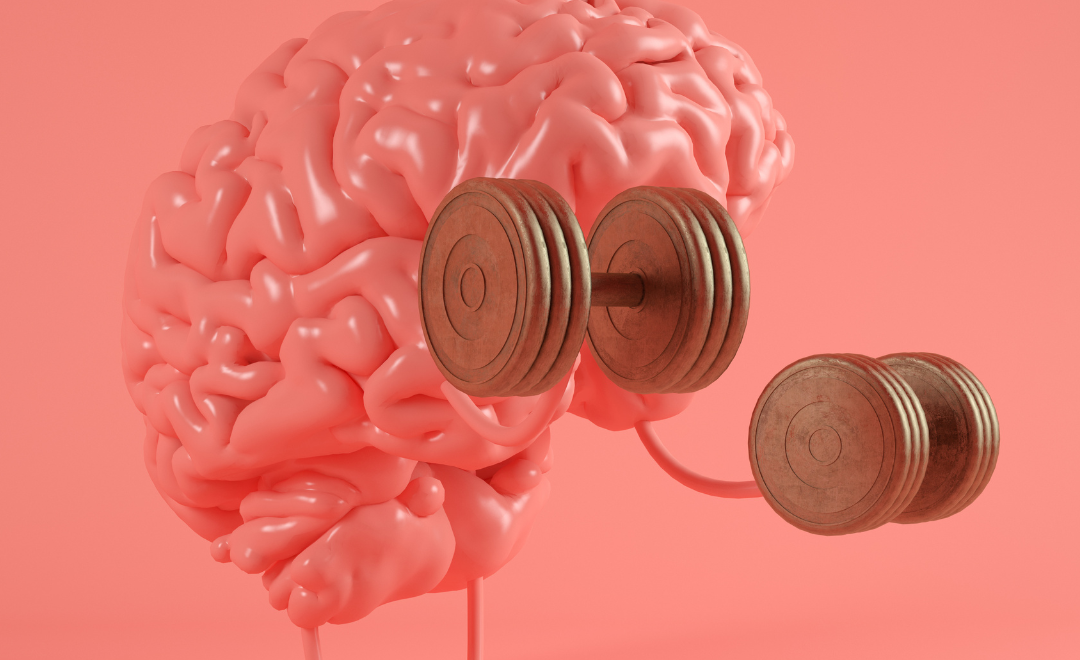I was 13 or 14 when I was diagnosed with PCOS. Almost 15 years ago today. I barely remember a life before that. As a school-going girl, dealing with PCOS was overwhelming, confusing, and downright exhausting. One day it’s painful cramps and unpredictable bleeding, the next it’s acne breakouts and this exhaustion that no amount of sleep can fix. And no cravings? Constantly! I was just never hungry. And yet because of that, I was always bloated. What I’d thought was fat at that time was my body’s way of telling me about the excessive and constant inflammation.
Traditional advice made it worse. Skip carbs. Do more HIIT. Get on a calorie deficit. Practice intermittent fasting. These recommendations are not made for cortisol balancing, the imbalance of which is the root of all my troubles.
Through all of this, as is often seen around us, I started hating having to be born in a female body. My life was SO difficult and the only solace offered to me was that most women go through this. I need to suck it and stop being a drama mama. It made me angry (and I was called being too emotional or too hormonal for it…)
Over the years, my curiosity and scepticism about the advice and reasoning I was getting led me to learn about my hormonal health. This introduced me to the idea of cortisol dysregulation. Cortisol is a steroid that’s produced by the adrenal glands in the body. It’s commonly known as the stress hormones. The reality is that it supports the body in situations of stress. It increases glucose in the bloodstream, enhances its use by the brain, and regulates the availability of substances in the body that repair tissues – all important functions when you’re in a fight-or-flight state. A spike, such as that in my case, tells the body that’s always in this state.
Think of cortisol like an internal alarm system. It’s a superb evolutionary response to danger but we don’t live in this kind of danger anymore. Imagine you’re trying to relax and enjoy a good cup of coffee, but your internal alarm is blaring danger. No matter what you do, it just won’t shut off. That’s the kind of internal chaos I dealt with for the first two phases of my life.
I’m going to share below the systems I’ve built over the years that help me calm down my cortisol. It’s taken me a long time and experimentation to get here. Most importantly, these systems have unlocked a radical and transformative mental shift in how I approach and think about life. This fundamental change has helped me the most. The systems are personal to my life requirements, preferences, and commitments, but the mental models are universal. You may find them as a useful starting point in your journey as well.
- Intentional Yes’s, Powerful No’s: I’m far more selective with my time and energy. This means saying “yes” enthusiastically to things that light me up and saying “no” without guilt when something doesn’t feel right.
- Prioritising Me: I’m not being selfish; I’m being strategic. Putting my physical and mental well-being first means I can show up better in all areas of my life. An empty cup cannot fill any other cup. I do not want to be a superwoman.
- No JOMO, no FOMO: I neither feel joy nor fear in ‘missing’ things out. I simply choose what deserves my energy. This helps me balance my commitments to myself, my family, my friends, and my social circles.
- Making rest non-negotiable: This quote is from Nicola Jane Hobbs, a psychologist I admire and respect. Her work is phenomenal and I highly recommend you check it out!

To give you context, this is what my life looks like right now:
- I’m Head of Growth at a longevity sciences startup at Pre-Series A. This means 9-10 hours of work every day.
- I also consult various other companies in female health specifically on user experience and research, growth, and product.
- I live with my partner and in-laws and have an active family life here. I’m the only one in a business-class family to have a job.
- We have an active social life and usually meet our circle 3-4x a week.
- I also spend time in learning new skills. Right now, I’m all about cooking. I completed my Precision Nutrition Level 1 course a few weeks ago. April onwards is a health tech fellowship I’ve been selected for.
- I am not active on social media. I don’t watch any TV. I watch movies 3-4x a month in theatres.
What are the different types of PCOS?
When I was first diagnosed, I didn’t even know PCOS has types. Maybe that’s why the recommendations would always feel so confusing.
The 4 Main Types of PCOS (Simplified):
According to science, there are 4 main types of PCOS:
- Type A: High androgens, irregular periods or no periods, and polycystic ovaries. This is usually considered the most severe form.
- Type B: High androgens and irregular periods or no periods.
- Type C: High androgens and polycystic ovaries.
- Type D: Irregular periods or no periods, and polycystic ovaries. This is often considered the mildest form.
Let’s break these down even further:
- Insulin-Resistant PCOS: The most common type. If you struggle with cravings, weight gain, and feeling like your energy crashes midday, insulin resistance could be a major culprit.
- Inflammatory PCOS: Acne that won’t quit, feeling exhausted and achy all the time…those are classic signs of inflammation running wild. This type can mess with you even if you’re not overweight.
- Post-Pill PCOS: For some women, going off birth control sets off a firestorm of PCOS symptoms, even if they never had problems before. Sometimes this is temporary, but it’s a sign your body needs extra support.
- Adrenal PCOS: Basically, this is PCOS supercharged by stress. You might have lots of that ‘wired but tired’ feeling, along with the typical PCOS stuff.
Remember, it’s normal to have a mix of things going on! Most of us don’t fit neatly into one type. The important thing is to figure out your main drivers so you can target your treatment more effectively.
My Story: Type C and Cortisol
Technically I’m under the “Type C” umbrella. This means I used to deal with some of the classic stuff like hirsutism, excessive period pain, fatigue, and lethargy. All of this is due to my body’s natural tendency towards an overstimulated cortisol system.
It wasn’t even like visible stress. It was more like feeling restless on the inside, even when I wanted to relax. My sleep was terrible, and I was dealing with low-level inflammation that made me feel off all the time, leaving me constantly fatigued with barely any energy or focus.
Cortisol’s Impact on My Body
Cortisol isn’t bad – we need it! But with PCOS, it can get seriously out of balance. Here’s what that looked like for me:
- Energy Crashes: I could go on an entire day without feeling hungry. Losing weight? Forget about it.
- Hormonal Imbalances: My periods were predictable but painful, but my skin was constantly breaking out.
- Exhausted but Anxious: I could never truly relax, yet felt wiped out all the time. It was a terrible combo.
High cortisol took every PCOS symptom and made it ten times worse.
The Stress Connection
Modern life is not designed for the way our bodies work, especially for those of us with PCOS. Think about it: we’re built to handle short bursts of stress, like escaping danger. But now? Deadlines, emails, traffic, families, constant dopamine hits with social media… It’s non-stop, and it messes with our cortisol levels.
With PCOS, you might be even more sensitive to this constant low-level stress. Our bodies can get stuck in ‘fight-or-flight’ mode, which makes everything worse.
That’s why I’m so focused on calming down my system at all times. Telling it that it is safe and secure. There’s nothing to fear. It’s about breaking the vicious cycle that makes PCOS so hard to manage.
Understanding Cortisol’s Natural Balance in Our Bodies
Our bodies are amazing. Cortisol levels naturally rise and fall throughout the day according to our circadian rhythm (your internal clock). Think of it like this:
- Morning Surge: Cortisol levels are highest in the morning, usually within an hour of waking up. This helps us feel alert and energised to start the day.
- Gradual Decline: Levels slowly decrease throughout the day, with the lowest point happening around midnight. This is meant to signal to our bodies that it’s time for rest.
Modern life messes with this natural rhythm. Things like late nights, irregular sleep, and chronic stress can keep cortisol levels elevated even when they should be low. This throws our entire system off balance. I’m not even getting into technology, fuelling systems, and movement stressors on the body right (but I will below!)
The Menstrual Cycle Factor
Our menstrual cycle also influences cortisol levels. Here’s how it roughly plays out:
- Follicular Phase (Start of Your Cycle): At the beginning of your period, both estrogen and progesterone are low, and cortisol tends to follow suit. This is often why many women feel a sense of renewed energy and focus in the days following their period.
- Ovulation: As your body prepares for ovulation, estrogen rises, sometimes triggering a slight spike in cortisol. This is completely normal, but for those of us with PCOS, it may be more pronounced.
- Luteal Phase (After Ovulation): This is where things can get tricky. Progesterone rises in the second half of your cycle to prepare your body for potential pregnancy. While progesterone has calming effects, it can also influence cortisol. For some women with PCOS, this leads to heightened cortisol sensitivity, meaning any stress is felt much more intensely.
With PCOS, our hormones are already out of balance. Many of us have higher than normal androgens (like testosterone), irregular cycles, and insulin resistance. These factors contribute to a chronically stressed-out system and dysregulated cortisol levels.
Those natural fluctuations in cortisol during the menstrual cycle can become a rollercoaster with PCOS. I noticed my worst symptoms – mood swings, sleep problems, cravings, you name it – flared up during the week before my period when cortisol naturally started to rise.
This isn’t to say those of us with PCOS are doomed to feel terrible all the time. But understanding this rhythm has been incredibly empowering. It explains why I need to be extra mindful of stress management and prioritise sleep hygiene, especially during certain phases of my cycle. It also helps me adjust my expectations – if I know I’m naturally more sensitive, I don’t beat myself up when I feel anxious or overwhelmed.
How do I manage my PCOS symptoms?
While managing PCOS is a long journey, I’ve found a few key tools incredibly helpful. But here’s the thing: I use them strategically, not obsessively.
- Blood Reports: I get comprehensive blood work done twice a year. This tracks things like hormone levels, inflammation markers, insulin, and vitamin D that are key to my PCOS management. Seeing those numbers helps me and my doctor makes adjustments when needed.
- Ultrasounds: Once a year, I get an ultrasound to check on my ovaries and overall status. It’s motivating to see any positive changes, but it also helps catch potential issues early.
- Sleep Ring: This might seem unconventional for PCOS, but honestly, it’s been a game-changer. My sleep ring lets me track my resting heart rate (RHR), heart rate variability (HRV), and sleep quality. These are great indicators of how stressed or balanced my system is, especially during different parts of my cycle.
- No Constant Progress Checks: While I track the important things, I avoid the daily trap of weighing myself, staring in the mirror, or obsessing over every little symptom change. It drove me crazy and made my stress worse. My focus is on doing things that support my body consistently, not short-term “fixes.”
Most importantly, avoiding constant symptom-checking helps me stay sane. We all know PCOS symptoms can fluctuate, and fixating on them can often become discouraging.
It’s far more empowering to focus on the actions I can control.
The Night “Unwind” Routine I Swear By
Honestly, how well I manage my symptoms during the day depends on what I did the night before. I’ve become very intentional about my evening routine because it directly sets the stage for good sleep and balanced cortisol the next day. Here’s what it looks like:
- Soothing Skincare: This isn’t just about pampering myself. Taking the time for a calming skincare routine with gentle massage signals my body that it’s time to unwind. Massages in general are calming for me so I like to incorporate these before sleep.
- Tech Blackout: No screens in bed, period. The blue light messes with my sleep, and honestly, scrolling before bed is pure stress, both physically and psychologically. I used to earlier force myself out of using my phone but now I don’t feel the need to anymore.
- Calming Activities: Things like gentle breathing exercises, journaling, and calming music help me shift into a relaxed state. Although I love reading, I tend to avoid it at bedtime because I can get too engrossed in it and not unwind.
- The Cotton Trick: Okay, this might sound weird, but I put a small piece of cotton in my right nostril at night. Research suggests it can help improve airflow and calm the nervous system. It’s made a surprising difference for me. I learnt about this in a meditation workshop I did. I don’t advise you to do this without expert support.
- Early and Nourishing Dinner: Eating too close to bedtime disrupts my sleep. I aim for a dinner rich in protein and healthy carbs a few hours before I want to go to sleep. No sugary treats at night, as they can spike my blood sugar and cause restless sleep. I also like to eat a full meal instead of light dinners to keep my nighttime glucose in check.
- Magnesium Support: I take 400-500 mg of magnesium bis-glycinate in the evening. Not only does it promote melatonin production, which is helpful for sleep hygiene, but magnesium is important for many processes in the body and is often depleted in those with PCOS. I ensure to take my bis-glycinate in a consistent window and never after I’ve had alcohol. On days that I’ll be staying up late, I skip it to not train my body to produce melatonin at an unfavourable time.
Everything in my evening routine aims to support my sleep and counter the overstimulation of modern life. It’s about calming my nervous system, so my body has a chance to catch up and regulate my hormones.
Adapting for Social Life
Let’s be real – life is great. I want to stay healthy so my personal and social life is thriving. Sometimes that means staying out later or having a few drinks. When that happens, I follow some systems that keep the negative impact as low as possible.
- Clean Choices: If I’m going to have a drink, I stick to simple options like clear liquor with water only. No soda or sugary drinks.
- Hydration is Key: I drink lots of water before, during, and especially the day after alcohol to counteract dehydration. I also ensure ORS or coconut water the next day to recover the lost salts and minerals.
- Mindful Eating: At a party, I make sure to eat a filling meal beforehand and choose protein-rich snacks over sugary things.
- Hangover Meals: No greasy carbs. A healthy, high-protein breakfast that follows the My Plate Method to ensure my body has the fuel it needs to recover from a binge (when it happens).
My Daytime Routine
Here are some key ways I stay active and mindful during the day:
- Morning Meals: I ensure to eat something in the first 60 minutes of my awake time. This usually looks like soaked dry fruits, 1 spoon of chyawanprash, and 1 glass of hot water with turmeric (for immunity). I also don’t skip breakfast or practice intermittent fasting. While this may work for many people, for me it causes further inflammation.
- Walking Meetings: Whenever possible, I take my calls and even smaller meetings while walking outside. The movement helps me stay focused and keeps my energy levels more stable. This also helps me ensure adequate sunlight exposure for Vitamin D balance.
- Standing Desk: I invested in a standing desk setup that’s helped me increase my active hours in the day. My next purchase is going to be a walker to keep under it so I can increase my step count further.
- Protecting My Focus: My sleep chronotype and multiple additional experiments have shown me that I’m most productive with deep work in the afternoon period. I can do 4-5 hours of deep work at a stretch. I keep mornings and evenings for shallow work on my to-do list. This way I’m not exerting myself unnecessarily and also getting through on my work. This also minimises distractions for me.
- Morning Walks: Even if it’s just 30 minutes, getting outside for a walk first thing sets the tone for my day. The sunshine on my skin boosts my mood and helps regulate my sleep-wake cycle.
- Vitamin D Boost: If I can’t get morning sun, I make sure to take vitamin D supplement drops.
These might seem like small adjustments, but they have a significant impact on my cortisol levels and overall well-being. Regular movement, prioritising my natural energy patterns, and exposure to sunlight all help keep my system balanced.
Adjusting With My Cycle
I’ve found that certain parts of my PCOS management need to shift depending on where I am in my cycle. Here’s what works for me:
Workouts That Aligns With My Cycle
- Period Week: I focus on recovery and gentle movement. I’m usually similar in energy but I prefer not to overexert myself. On days that I do it, I’m crankier and irritable.
- Luteal Phase: Strength training, Pilates, yoga, and steady-state cardio-like running are better choices for me. For strength training, I push my body more without increasing the weights I’m using.
- BCAA Boost: Especially during the later luteal phase and period, I take BCAAs (branched-chain amino acids) during my workouts. This helps preserve muscle and prevent fatigue.
- Pre-Period Reset: The day before my period, I switch to restorative yoga and long walks to ease PMS symptoms.
- No HIIT: I avoid workouts that don’t bring consistency to them through all phases of my cycle. HIIT, spin cycle exercises, Zumba, or aerobics are not my cup of tea for this reason.
- Morning Workouts: Anything that needs my full energy needs to happen in the first half of the day. Evening workouts tend to spike my cortisol, preventing sleep hygiene for me. When this is unavoidable due to life in general, I supplement with chamomile tea or other such relaxing food items when going to sleep.

After a morning run on my 29th birthday for a marathon hosted in my city. I ran 10K on Day 19 of my cycle.
Food for Focus and Fuel
- Freshly Cooked Food: I avoid cold foods and drinks in general, focusing on warmer meals that are easier to digest. This is especially important during my period. In general, I prefer to not food that’s more than a day old. I don’t use ice or sweeteners.
- Follicular & Ovulation: These phases are about focus for me, so clean protein and complex carbs are crucial to prevent brain fog. Shroom coffee (with adaptogenic mushrooms) after lunch gives me non-jittery energy and focus.
- Luteal & Menstrual: I need more energy-sustaining foods during these phases, along with lots of iron-rich options to replenish what I lose during my period.
- Caffeine Control: I’ve never been someone who’s needed coffee for energy or focus so not having it never poses a concern or problem for me. I take coffee only for the taste of it (and I only want to have great coffee). I avoid coffee with breakfast or after late evening. I also ensure not to take coffee in the first 120 minutes of waking up to prevent cortisol spikes in the body. Instead, I use my body clock and natural systems to energy and wake up fresh.
Supplements
- L-theanine: During my late luteal and menstrual phases, I take L-theanine, a natural amino acid that promotes relaxation and better sleep. This also helps combat the headaches I sometimes get during the day in these phases.
- Collagen: I’ve been doing a cycle of 60 days each with a 2-3 months gap between each cycle right now. I plan to up this to 90 days each with a 2-month gap between each cycle. I’ll eventually get this up to a 180-day cycle with a 3-6 month gap depending on what I require at that time.
- Protein: I use plant protein to ensure I hit my daily macros of food. I skip this on days I’ve had meat 2x a day to prevent bloating.
I don’t like to be obsessive with cycle syncing. I think adding more work and decision-making fatigue to my day will defeat the purpose. But awareness of how my hormones impact my energy levels, mood, and even my skin has been extremely helpful. Adjusting these key areas helps me feel more in control and less at the mercy of my ever-changing body.
The Results
The biggest win with this approach is that I no longer feel lethargic which used to plague me throughout my cycle. PMS-related mood swings and bloating are pretty much a thing of the past. Honestly, it’s incredibly freeing!
- Fertility: My fertility levels are a-okay as per my last consult.
- Energy: I have more bandwidth to live a fuller life.
- Hair: I’ve got laser done all over but in general and don’t actively face any challenges with hirsutism. I do have thin and less hair on my head but that’s also genetic.
- Obesity: I’m fit, active, healthy size S in the recommended weight range for my height. My BMI has been between 18-20 for the last 10 years now.
Living with PCOS means there will always be challenges and adjustments. But I’m no longer controlled by it. The most empowering part has been finding what works for my body and building a life that supports it, not sabotages it.













